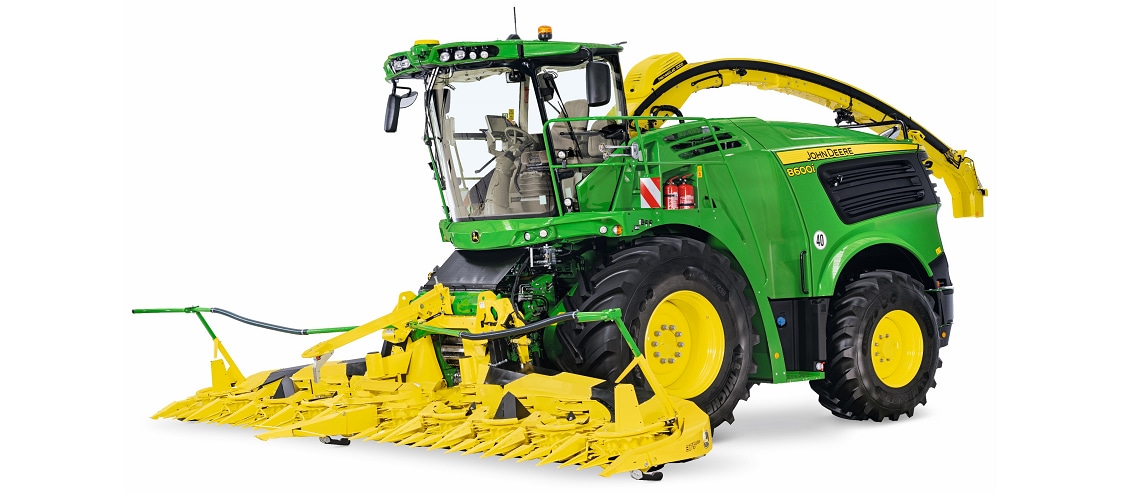
SEPTEMBER 20, 2023
A Smaller Footprint: Embrace Sustainability with John Deere’s Unrivalled Dairy Farming Solutions

The Covid-19 pandemic has rocked every industry to the core. Everyone had to adapt, think differently and reflect on how things are to be done, going forward. But as dramatic as the fallout from the pandemic has been, it by no means has eclipsed yet another pressing matter: the urgency to prioritize a sustainable future.
Heatwaves, flooding and forest fires—climate change has fuelled extreme weather events all around the world. Experts say that global warming is making these weather-related disasters even more frequent and deadly. This year alone, thousands of people are estimated to lose their lives to severe weather phenomena.
As businesses, we can no longer afford to approach sustainability as a secondary objective.
Why Dairy Enterprises Need to Look Beyond their Operations
Globally, we now emit 43 billion tonnes of greenhouse gases, out of which the dairy industry is responsible for more than a quarter of the world’s net carbon emissions. Last fall, international policymakers called out major emitters in the consumer-goods sector to tackle climate change with a concrete roadmap. With legally binding treaties like The Paris Agreement, companies are feeling the pressure to address SDGs (sustainable development goals) on an urgent basis. Leading global dairies are now setting ambitious sustainability targets for themselves.
However, the biggest scope of achieving these targets lie outside their chain of operations. For the dairy industry to become truly sustainable, milk processors and distributors need to take a look at their entire supply chain. Apart from securing carbon-neutrality in their own business operations, dairy brands have a social responsibility to encourage sustainable milk production practices on the farm. Influencing dairy farmers to adopt clean energy solutions will make a huge impact on minimizing their net carbon emissions.
With conversations for a circular economy gathering pace, shareholders’ interests in environmental, social, and governance (ESG) investing, seems to be heating up as much as our atmosphere. Financial markets are also undergoing a profound transformation with investors mandating global standard ESG compliance for continued asset allocation and management. Sustainability is not an issue that can be left to a central-unit, rather, it requires reaching deep into the functions of an industry’s entire value chain.
Citizens, policy makers, investors, and new competitors are increasing the pressure to act now. Even in the most ambitious emissions reduction scenario, an IPCC(Intergovernmental Panel on Climate Change) report claims that the world will warm up by 1.5°C above pre-industrial levels in the 2030s, while based on the current state of global climate commitments, the world is on track to heat up by a hellish 2.7°C by end of the century. To meet global sustainability ambitions, everyone in the supply chain must step up to decarbonize dairy from the farm to the fridge.
How John Deere Can Help Dairy Farms Achieve Carbon Neutrality
A 186-year-old world leader in agriculture tech solutions—John Deere supplies intelligent, connected machines and applications to help farmers revolutionize the dairy processing industry. Developed with sustainability in mind, we have an unrivaled pipeline of dairy farm innovations that are designed to address bottlenecks, reduce residuals and work in synergy with the environment. Dairy corporates can embrace sustainability with John Deere throughout their supply chain in two ways:
1. Augment Livestock Productivity through Superior Feeds
Forage quality can make a huge difference in the quantity of milk produced. But a major roadblock faced by dairy farmers around the globe pertains to the lack of good quality feed and fodder available for livestock. John Deere enhances animal productivity in dairy farms with top-of-the-line feed crop management solutions to maximize forage quality.
When animal nutrition is optimally met, milk production per cow rises, allowing farmers to reach peak milk yields with much less cows. John Deere’s self-propelled hay and forage harvesters optimize chop length and reduce silage loss, to deliver protein-rich cattle feed that enhances ruminal digestibility. This promotes herd health and optimizes milk productivity with fewer cows, reducing the overall carbon footprints of dairy farms.
2. Maximize Crop Yields with Automated, Precision Farming
Over the past three decades, John Deere has gone from purely mechanical to servicing smart industrial technology required for modern-day farming. Be it autonomous tractors or self-driving harvesters, our extremely precise agriculture solutions can optimize crop yields down to the last grain. With complete lifecycle solutions across the entire supply chain, John Deere’s dealer network remains unrivalled.
With John Deere HarvestLab™ 3000, Active Fill Control, Documentation etc. dairy farmers receive real-time feedback for delivering water, pesticide or fertilizer in calibrated doses to only the areas that need it. This improves in-field productivity and reduces water and chemical runoffs, conserving natural resources. John Deere machines are able to give farmers more yield for every crop per hectare/acre, minimizing emissions in the entire crop production cycle.
The integration of intelligent farming decisively improves dairy operations and management, significantly cutting down on the environmental impacts of milk production. With eyes on a more sustainable future, John Deere continually seeks to move dairy farming forward, with all-round dairy support that feeds a growing population without starving the planet.
* Are you looking for dairy farming solutions that can help you maximize your returns on investment? You can contact your local John Deere dealers or leave your inquiry through our Contact us form to find out how John Deere equipment can help you.